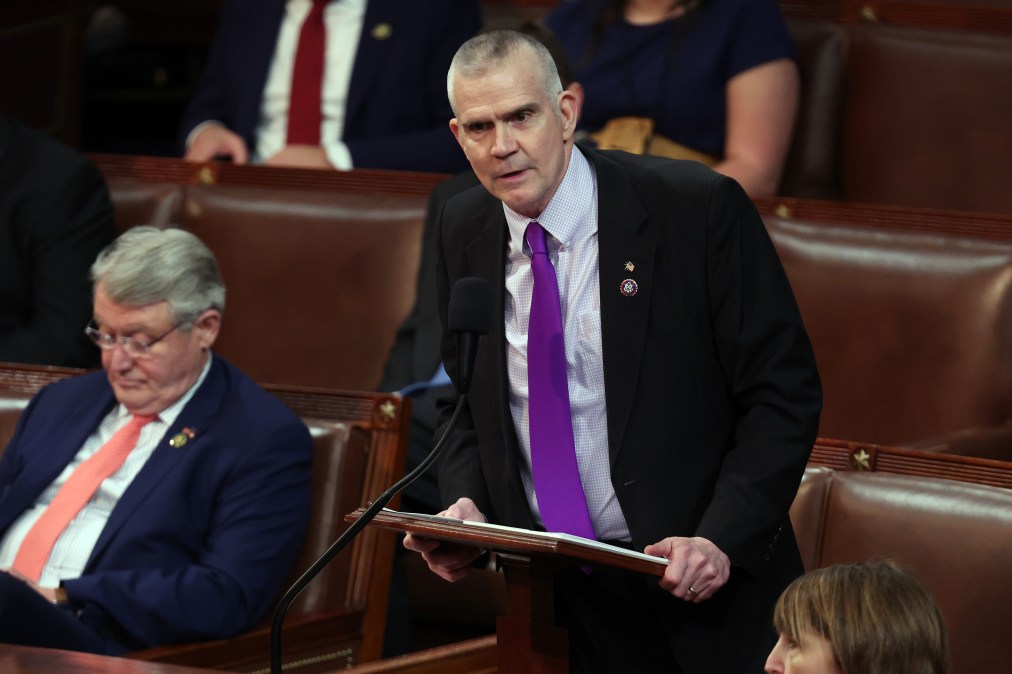Congress presses VA on modernization overhaul, supply chain system upgrade

The Department of Veterans Affairs provided Congress with a “long overdue” update Tuesday on efforts to modernize its supply chain, fielding questions from lawmakers about the department’s transparency regarding the plan.
The VA is inching toward awarding contracts for its upcoming modernization of a supply chain management system, officials shared during a House Veterans’ Affairs Subcommittee hearing. The Supply Chain Modernization (SCM) acquisition will be an “indefinite delivery, indefinite quantity” services contract and the validation phase has been approved through the Federal Information Technology Acquisition Reform Act (FITARA) review, led by the agency’s chief information officer.
Lawmakers across the aisle agreed that the VA is not meeting reporting requirements requested by the subcommittee’s chairman, Rep. Matt Rosendale, R-Mont., as laid out in the House-passed IT Reform Act of 2021, which requires the agency to submit information — including cost, schedule and performance metrics — for “any major technology project” to Congress before the VA expends funds.
“I do believe VA can be successful in this effort if they communicate requirements and resources related to programs, effectively,” ranking member Sheila Cherfilus-McCormick, D-Fla., said during the hearing. “As of now, we haven’t seen that effective communication.”
Michael Parrish, the VA’s chief acquisition officer and principal executive director, said during the hearing that the agency does not view the SCM as a “major” IT project because the VA has not established a “firm budget” or a “firm schedule.”
Parrish described the project as taking a modular approach and said that the VA is addressing subcomponents with separate technology solutions as a service instead of purchasing hardware “that otherwise would be obsolete over time.”
In the current bill text for the IT Reform Act, the threshold for a “major information technology project” is met if the dollar value of the project is estimated to exceed $1 billion for the lifecycle cost of the project, $200 million annually or if the project is designated as such by the department’s secretary or CIO, or the director of the Office of Management and Budget.
“Without a doubt, the VA and the veterans it serves would benefit from a functional inventory management system, and the department could make better use of taxpayers’ dollars if the system used to order medical supplies were connected to the systems that pay for and track them,” Rosendale said in his opening remarks. “However, what is described in the VA’s request for proposals seems to be a bureaucratic, empire building, mega-project.”
During the hearing, Rosendale cited information given to the committee from the VA putting the lifecycle cost of the SCM system between $9 billion and $15 billion, and would require congressional funding into 2043. Parrish reiterated that the agency is not yet committed to any dollar amount for the project.
“The [SCM] project is a gigantic effort, the likes of which we have only seen in the [Electronic Health Record] and we know how that has turned out,” Rosendale said. “It would try to knit together all-encompassing systems to manage every aspect of a unified VA supply chain, from tongue depressors to X-ray machines to printer paper to headstones.”
The VA’s Oracle Cerner-run electronic health record has seen a litany of challenges, including patient safety issues with EHR pharmacy software and a veteran’s death tied to a scheduling error. The system was originally launched in 2020, in an effort to create interoperability of records between the VA and Department of Defense health care systems. The implementation of EHR was later suspended in 2023 as part of a reset, and the department noted that it was working toward holding Oracle Cerner accountable for delivering high-quality services.

